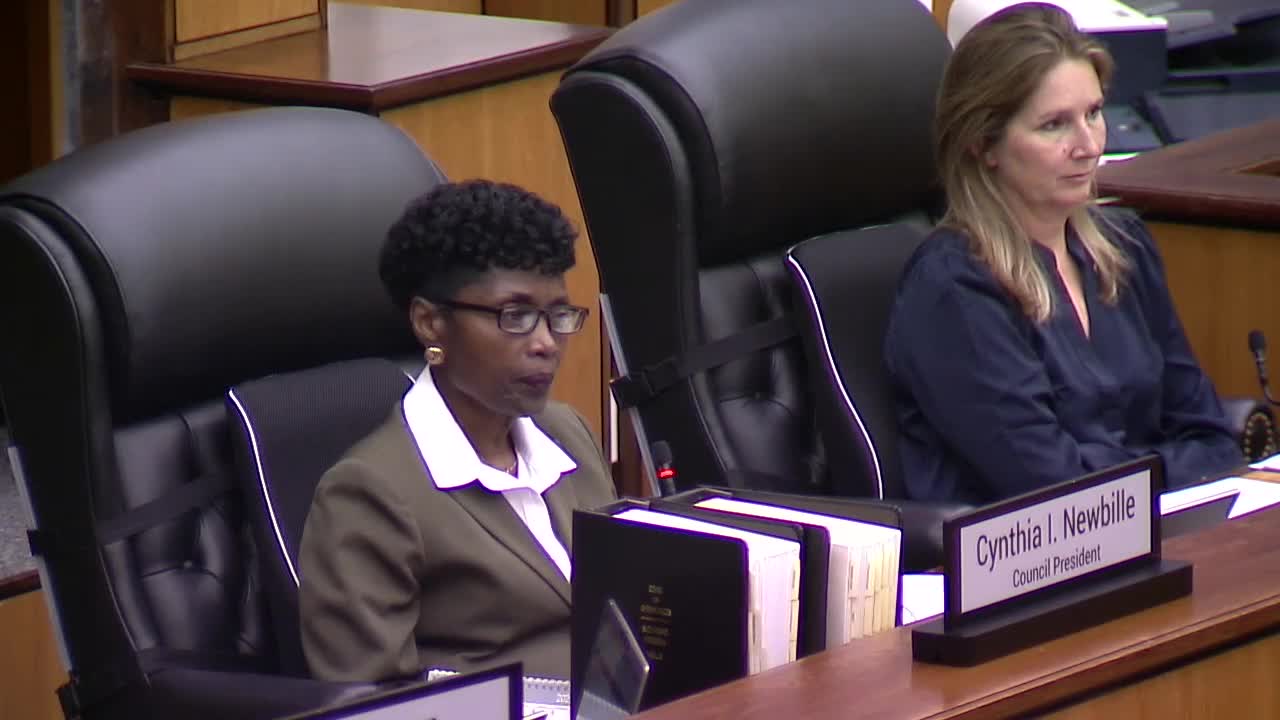Article not found
This article is no longer available. But don't worry—we've gathered other articles that discuss the same topic.
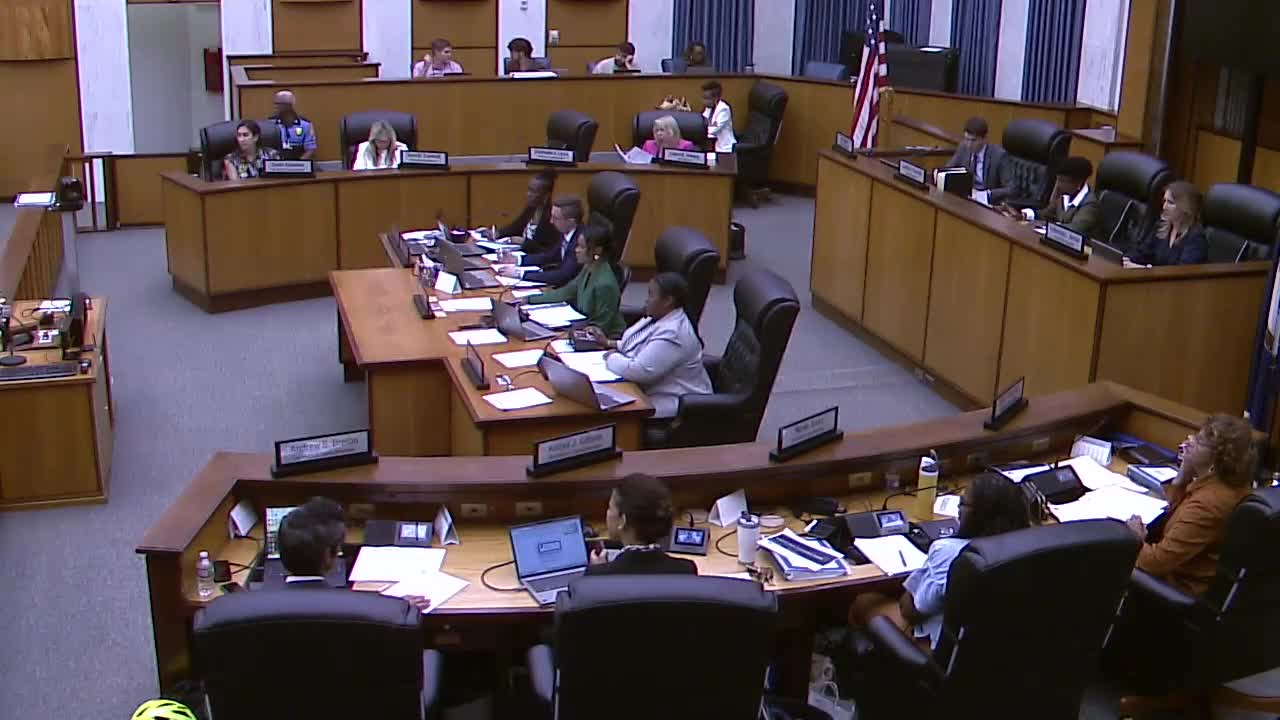
Resident says utility work damaged meter and home; seeks city help for repairs and bill relief
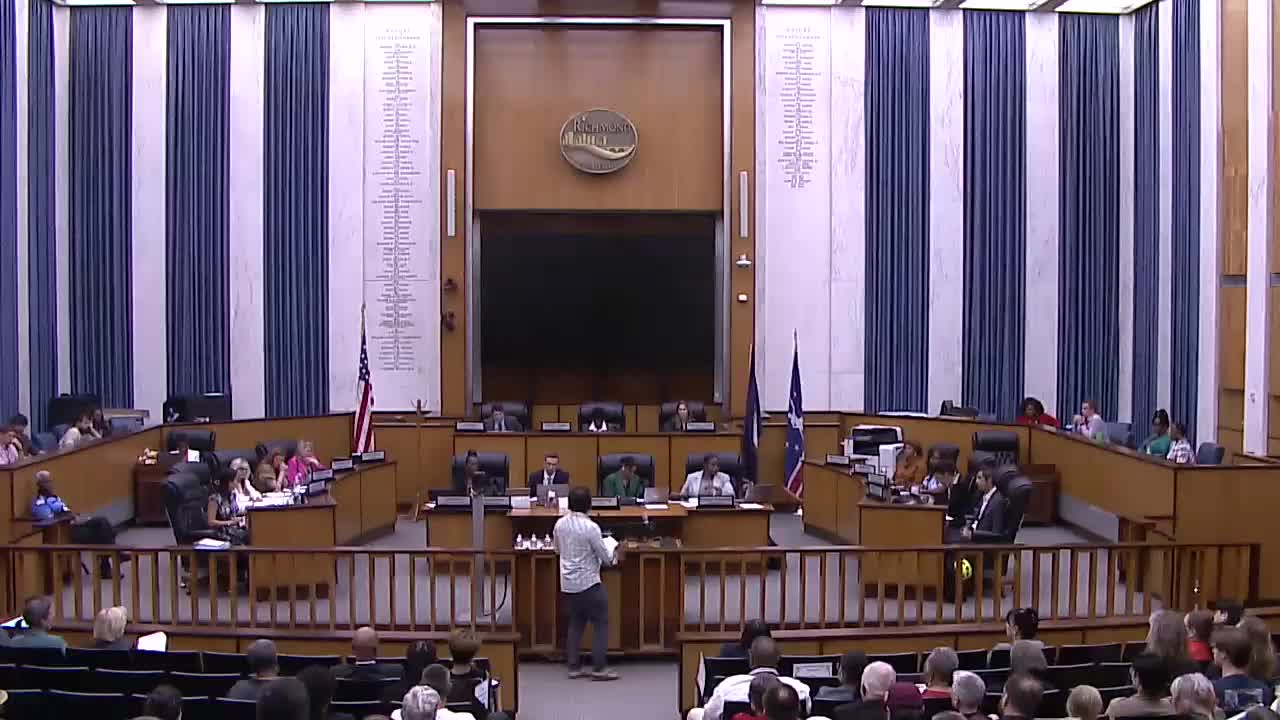
Neighbors say alleged unlicensed group home threatens safety; council and agencies referenced jurisdictional gaps
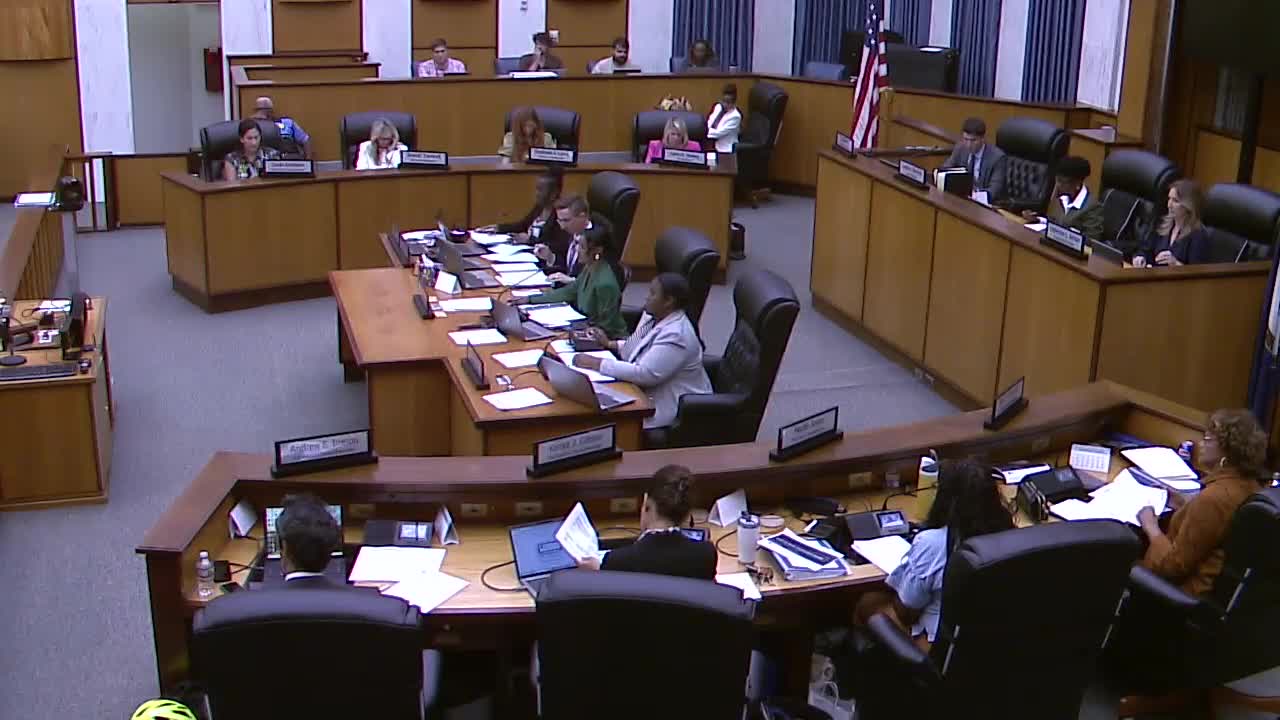
Residents ask council to halt speed-camera citations, cite malfunctioning lights and slow appeals process
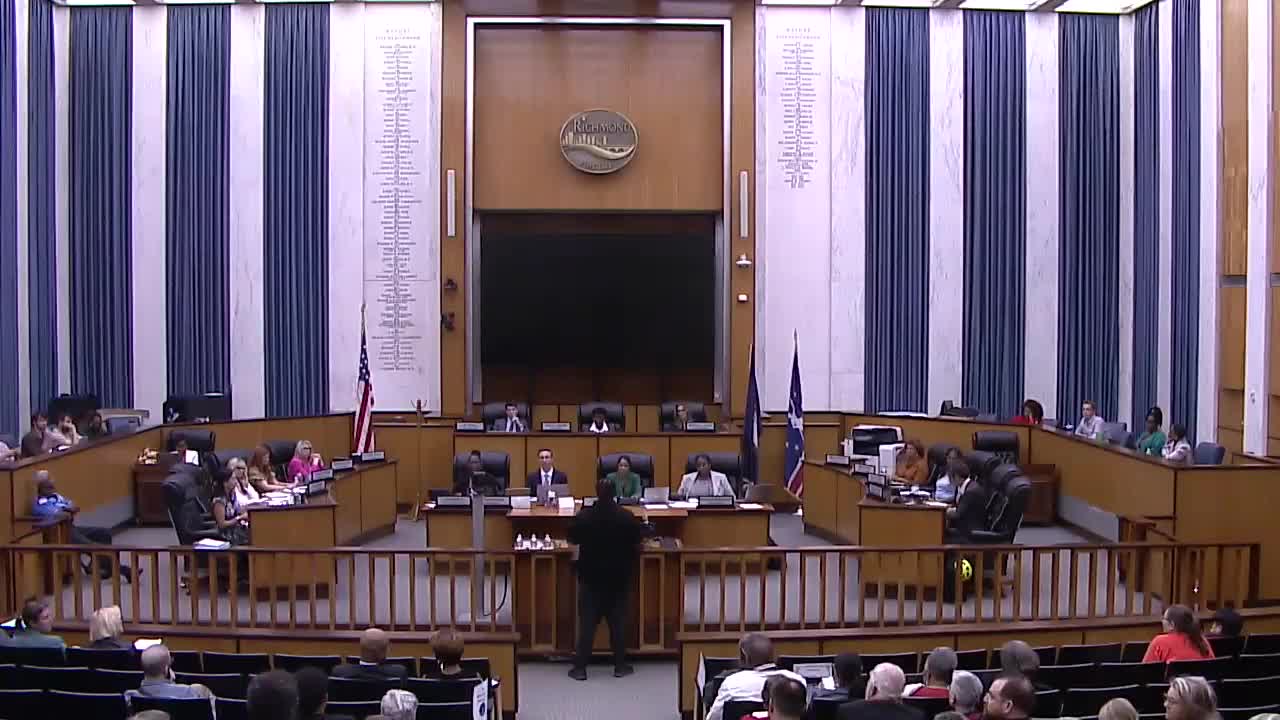
Council puts Henrico parcel sale on hold, asks staff to consider public bid process
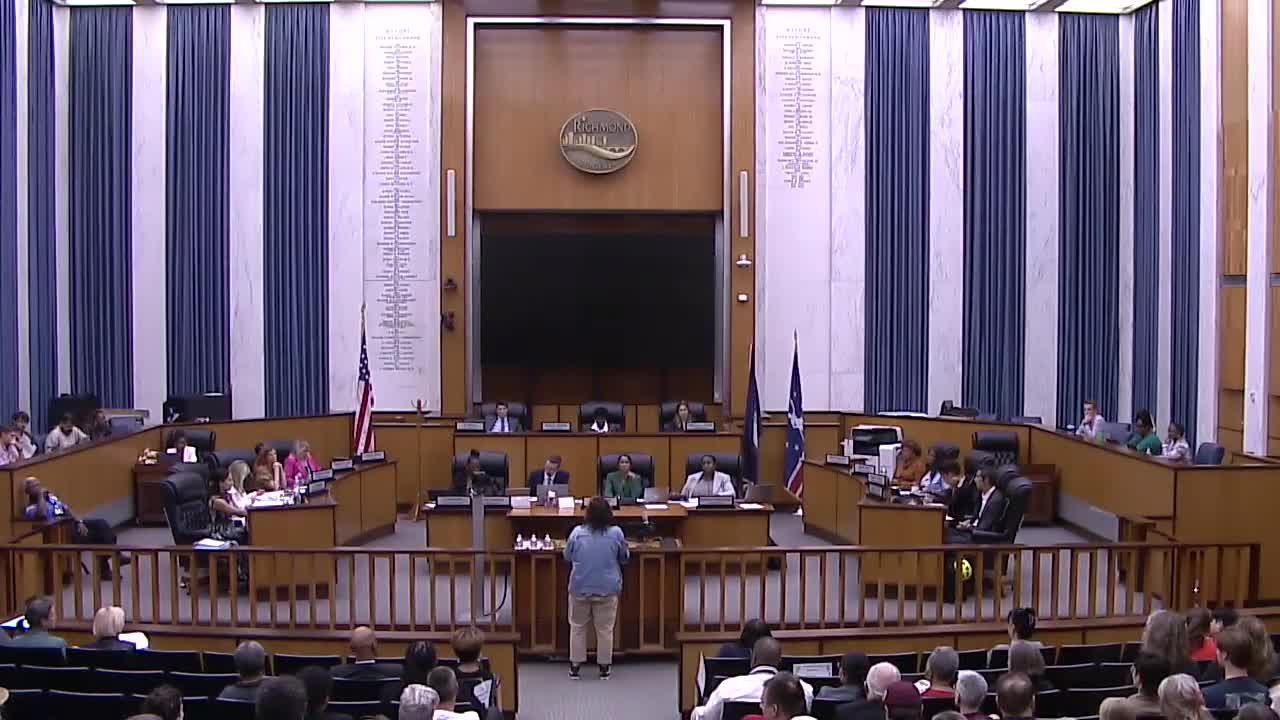
Residents press council to prioritize anti–rent-gouging legislation and protect housing funding
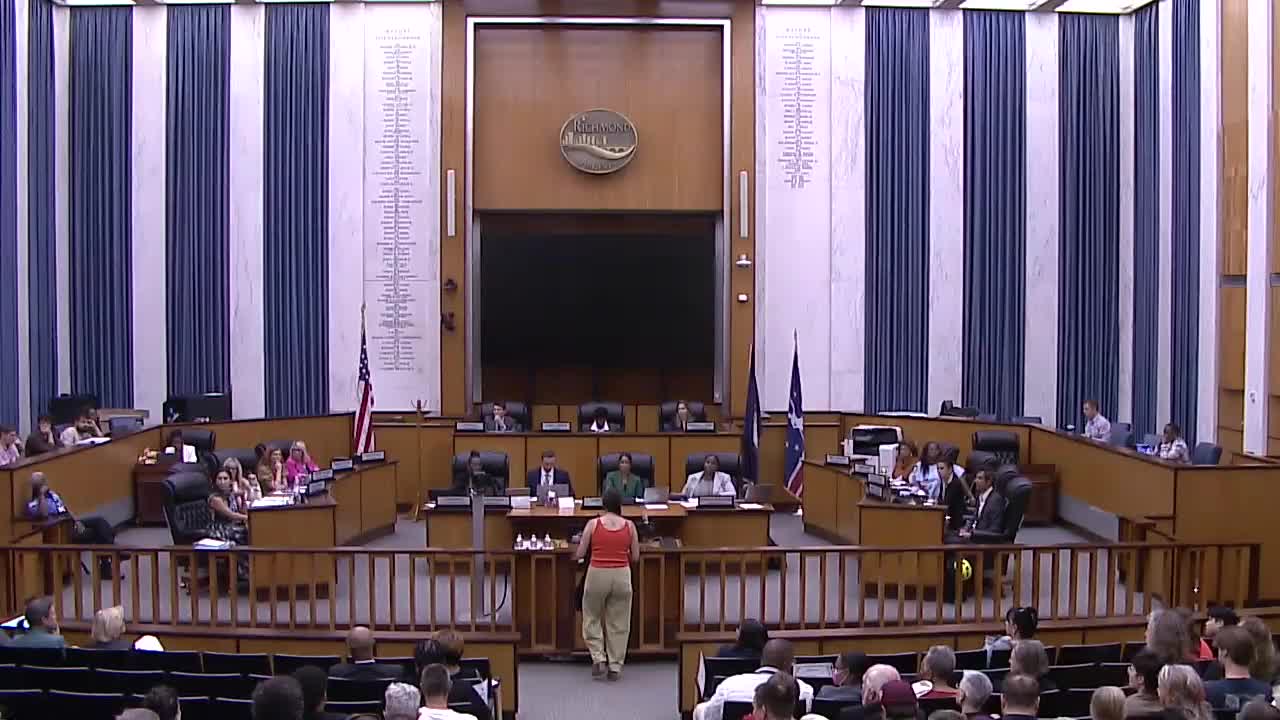
Residents urge Richmond to adopt 'trust' policy and end sharing of license-plate reader data with federal agencies
